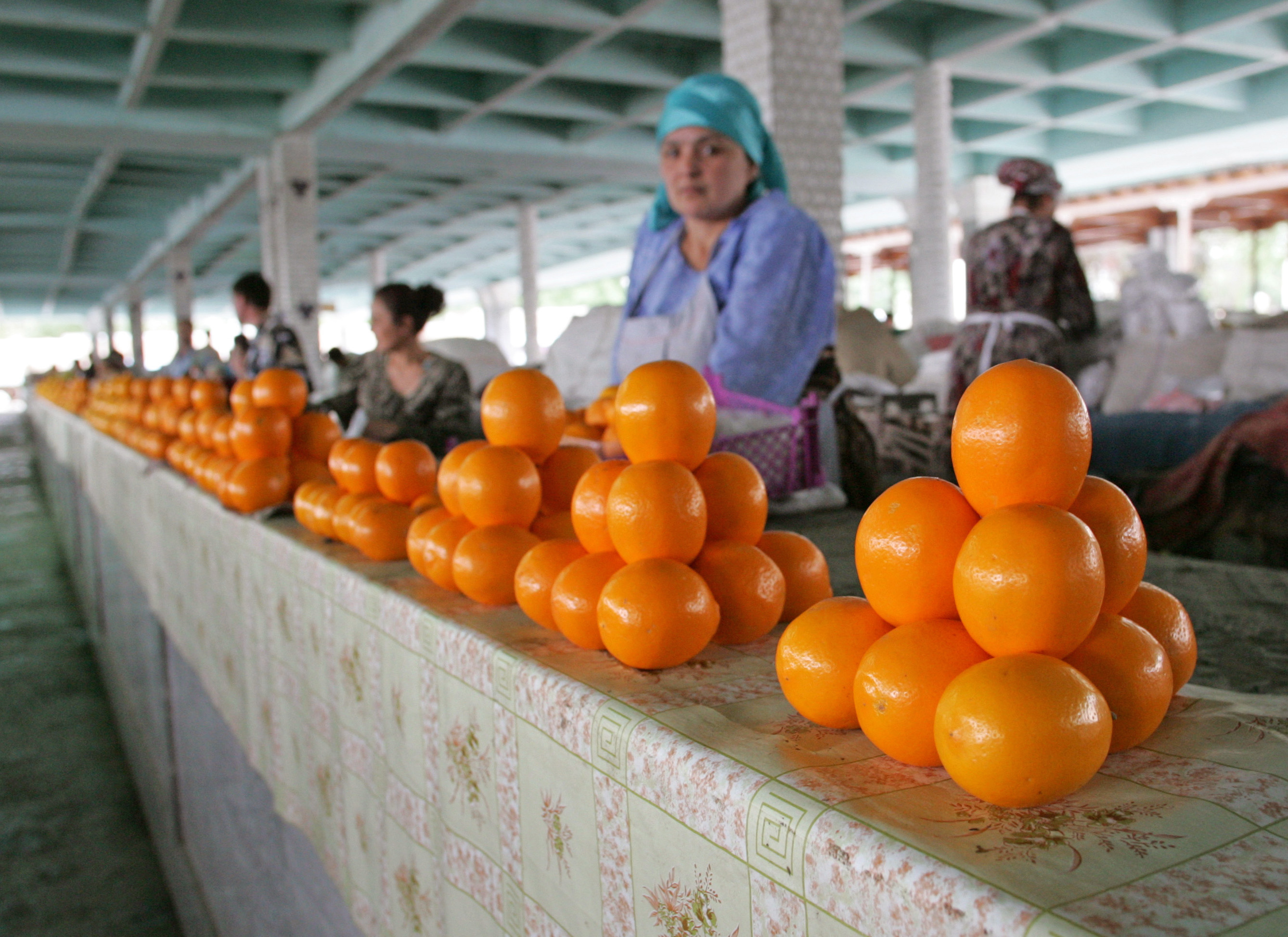Social situation Lack of opportunities for young people
Market in Samarkand
Uzbekistan currently ranks 107th out of 193 countries on the Human Development Index (HDI).
One major challenge is the country’s rapid population growth (2023: two per cent). About 45 per cent of the approximately 36 million inhabitants are under 25, and 500,000 people enter the labour market every year. Economic development is unable to keep pace with such rapid growth. This leads to problems in terms of providing education and employment, problems that are ultimately drivers of poverty.
According to World Bank figures, in 2024 unemployment was at 4.5 per cent, with youth unemployment at 10.9 per cent. However, experts believe that unemployment rates are actually much higher. One of the consequences of poor employment prospects is high labour migration, mainly to Russia.
Reforms in the education and health systems
Much of the country’s medical infrastructure dates back to Soviet times, and it suffers from outdated technology and inefficient structures. People on low incomes who live in rural areas are especially badly affected.
The Government of Uzbekistan sees the need to improve access to healthcare and create income and job opportunities. It wants to prevent a rift in society and remove some of the factors that fuel public support for radical Islamists.
The government has, for instance, initiated reforms in order to modernise the entire education system (from pre-school to higher education and vocational training) and make the teaching profession more attractive. It is also investing extensively in public healthcare, with German support (see also: core area “Health, social protection and population dynamics”).
As at: 16/06/2025
